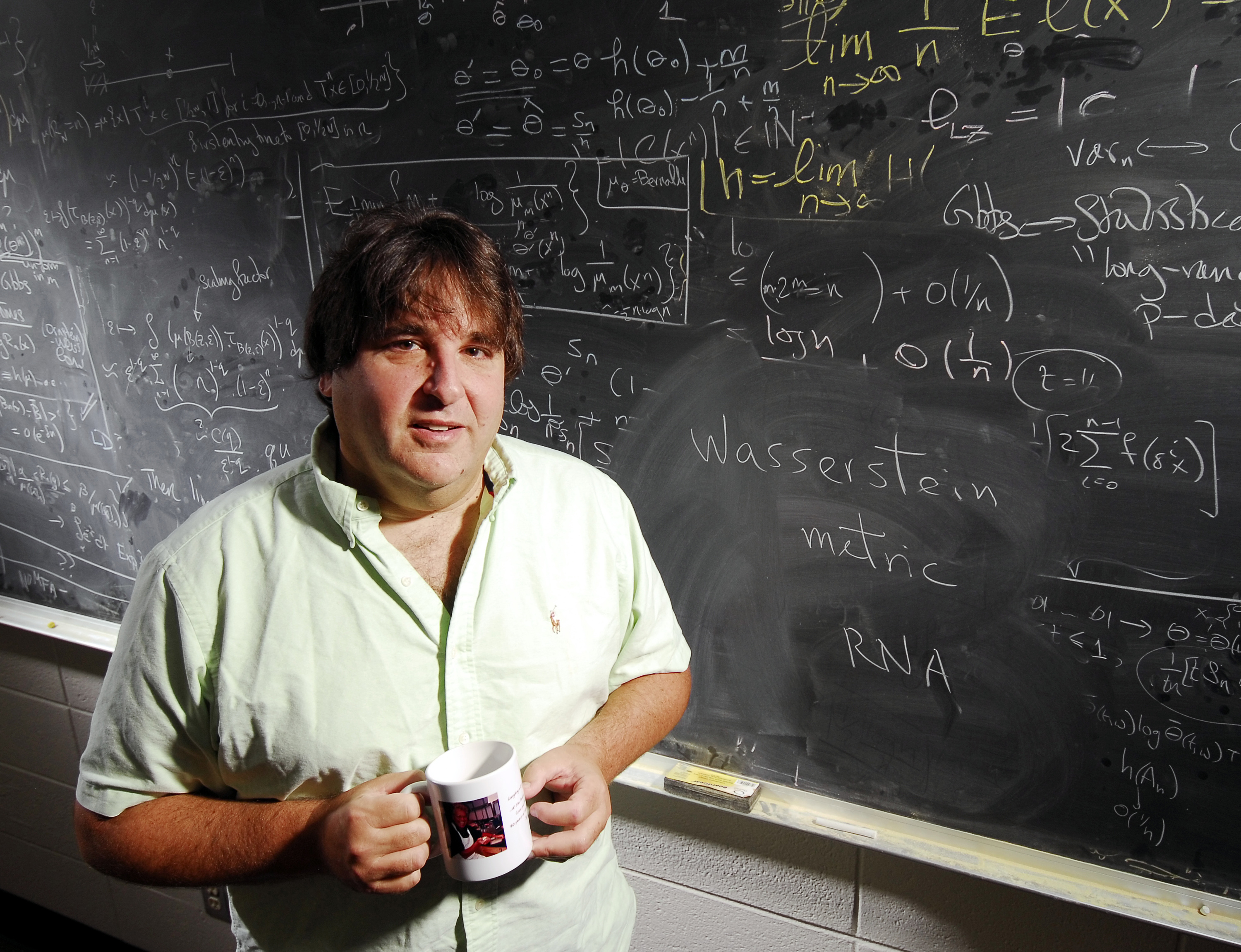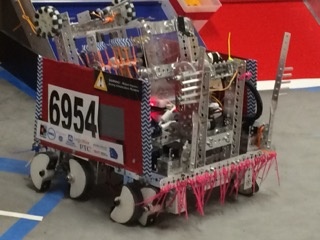- You are here:
- Home
April 22, 2016
| Atlanta, GA
What is your research about?
I work closely with biologists to combine mathematical modeling with experiments. We study how populations of bacteria grow and evolve, as well as the dynamics of bacterial killing by antibiotics and viruses, especially in physically structured environments such as biofilms.
Physically structured habitats are particularly critical for treatment of surface-associated infections, such as endocarditis, osteomyelitis, and infections of prosthetic heart valves and joints. Our goal is to improve the efficacy of antimicrobial therapy.
I am also the principal investigator of the Boeing-sponsored FlyHealthy™ research study, whose goal is to understand the rates and routes of transmission of infectious diseases in an airplane cabin during flight and to find strategies to mitigate transmission.
What advice would you give to a college freshman who wants to be a mathematician?
Do a minor in an exciting area of science, engineering, or finance. A minor will help you develop a foundation of knowledge in another field, to see how mathematics is used in applications and to learn new mathematical methods. Almost everything I know about numerical approximations and special functions I learned in physics classes.
The minor would also provide a basis for future multidisciplinary collaborations, which I enjoy immensely. Also learn to program well in at least one computer language, and take at least one intensive writing class.
What is the most exciting thing about being a part of Georgia Tech?
A huge amount of exciting research goes on at Tech, and almost everybody uses, or at least appreciates, mathematics. This environment leads to many exciting collaboration opportunities across campus.
What are you most surprised about in your encounters with Georgia Tech students?
I am continually surprised by their cleverness and excellent work ethic.
Just yesterday I met with an undergraduate who started a research project with me on animal movement. Two weeks ago I sent him a video of the movement of a deer that a wildlife biologist colleague created from GPS tracking. On his own initiative, the student extracted the essential data from the video, taught himself the basics of Markov chains, and constructed a Markov chain model. Wow!
If you could not be a mathematician, in what line of work would you be now?
I hated biology in high school and college, because it was taught to me as completely descriptive, with no quantitative element. Biology has since become much more quantitative, and mathematical models have provided many important insights to biological phenomena. If I could not be a mathematician, I would probably enjoy being a microbiologist, a geneticist, or a virologist.
Shown on the right is a competition robot built by robotics team that Howie Weiss mentors.
What unique skill, talent, or quality do you have that your colleagues may not know about?
I have a robot shop in my basement.
Members of my entire family are big supporters of FIRST Robotics Competition (FRC) in Dekalb County schools. When my older daughter, Kristin, was in high school, she competed in FRC, which involves building and programming robots up to 120 pounds. Now a Georgia Tech sophomore, she mentors Dekalb County's only FRC team.
My younger daughter, Zoe, has competed on Dekalb County's only FTC (FIRST Tech Challenge) team these past three years. We have been hosting her team in our basement, complete with a 12 ft x 12 ft playing field. Previously, she participated in FIRST LEGO League (FLL) robotics. In FLL, children in grades 4-8 build and program autonomous robots using LEGO Mindstorms components and compete in a yearly themed playing field.
Most Dekalb County elementary schools have an FLL team, but very few teacher-coaches have any technical background. My wife, Lora; Zoe; and I spend Friday evenings in the fall traveling around to Dekalb County schools to help run hands-on FLL workshops. We also judge at the local and state tournaments.
What is your ideal way to relax?
I enjoy outdoor activities: paddling along local rivers, hiking, and biking with my family. I also ran for much of my life, and after a (too) long hiatus, I have resumed running.
What three places would you like to visit?
Certainly the Galapagos Islands.
Several years ago I wrote a paper on inverted biomass pyramids at some pristine coral reefs in the middle of the Pacific, and in principle, I would love to explore one or two of these reefs. In practice, this would likely require weeks on a boat in the open ocean - I get queasy just thinking about this - and then diving with aggressive sharks.
Finally, I would like visit Tromsø, located above the Arctic circle, to observe the Northern Lights and give a talk in the world's northernmost university. I know a few excellent scientists who work there.


